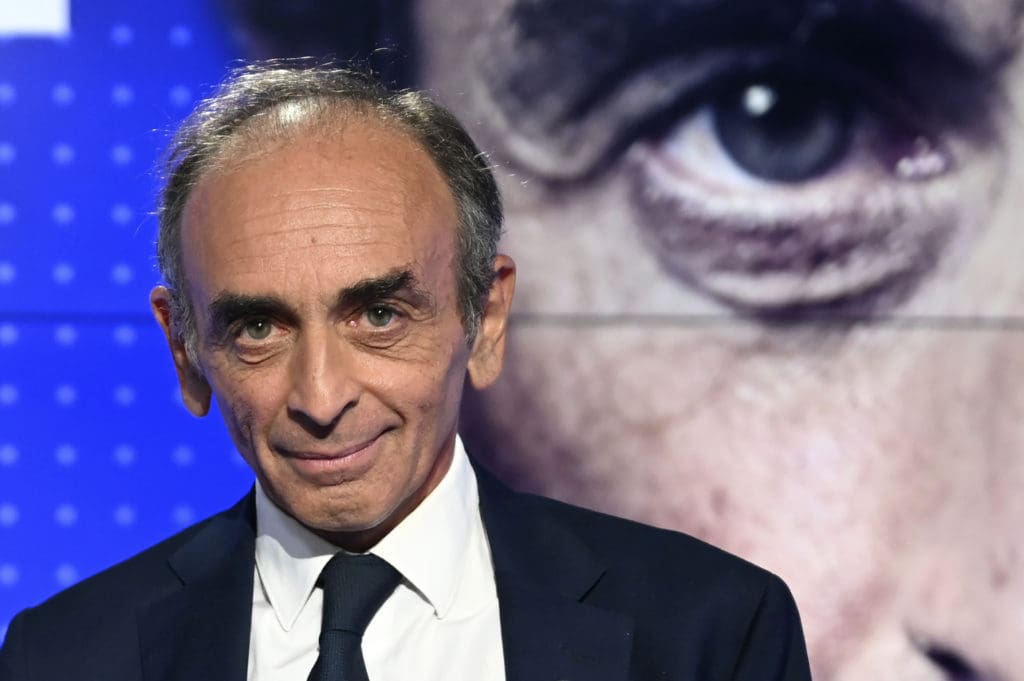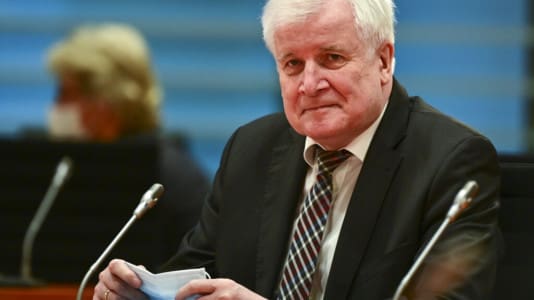In a televised debate between five French politicians vying to be the presidential candidate for Les Republicains (Republicans), only French MP Éric Ciotti was open to using the expression “Great Replacement,” which describes the phenomenon of White Europeans being replaced through low birth rates and foreign immigration across the Western world.
“Sixty-seven percent of French and 84 percent of Republicans use the term ‘Great Replacement,” Ciotti said in the debate on television channel LCI, referring to a poll from last month showing just how concerned the French are over demographic replacement. “You can call this phenomenon what you want, but I wish that France remains French. We are the inheritants of a magnificent history: that of the light but also that of a Judeo-Christian civilization.”
Ciotti later went on CNews to further discuss what he said is clear evidence of the Great Replacement happening in French society.
“Why deny the obvious? We can see that our society is changing, moreover, I repeat, here again it is in the France Strategy which is placed alongside the prime minister who gave these figures which show that today there are more and more births in France linked to foreign parents or of foreign origin, this has accelerated considerably over the last ten or 20 years,” declared Ciotti.
“There are some who can be satisfied with it, such as Emmanuel Macron, and the left, who advocate a multicultural society. I am not satisfied with it… I would like us to take measures today to stop the mass immigration that is fueling this situation and this change in society. It is mass immigration, mainly of Arab-Muslim culture, that is the cause of this modification, so we must tackle the source,” he continued.
France is undergoing rapid demographic change and has the largest Muslim population in Europe. A recent study highlighted how people of a European origin are on their way to becoming a minority in the country’s urban areas.
The Great Replacement become major debate topic in France
The term “Great Replacement” was coined by French writer Renaud Camus. Popular commentators, in particular Eric Zemmour — who is likely running for president in France’s upcoming elections — have introduced the term to a widespread audience.

“I think the anguish felt over the end of France as it was, the anguish of the Great Replacement, has become a global feeling,” said Zemmour last year. “The fear of no longer being France, the fear of the famous Great Replacement. A lot of people are starting to think that Islam is going to replace us. It has become a massive feeling, a mass of 70 to 80 percent of France.”
In March of this year, influential philosopher Michel Onfray also said the Great Replacement is real despite claims that it is a far-right conspiracy theory.
“Is there in fact a Great Replacement? Demographers say yes, there is. It is very simple. There are men and women, they procreate, you have a certain birth rate, you do the calculations, make projections, and it will show a graph,” he said, pointing out that those who dismiss the idea say this will only happen in a distant future but cannot deny that demographics are changing, with ethnic Europeans moving towards a minority position in countries across the West.
“If someone on the left says ‘the Great Replacement, that is us’, the response is ‘very good’, but if someone on the right like Renuad Camus says there is a ‘Great Replacement,’ they immediately cry ‘fascism’,” Onfray said.
Can the term become more accepted in politics?
However, the term is not just taking place among public intellectuals anymore, with French politicians seemingly willing to wade into the debate.
“I wish for my children — our children — to live in a country faithful to its history,” Ciotti said. “But today, to use the words of (former) President Giscard d’Éstaign, we are amid a ‘migratory invasion.’ We are at a historic crossroads. We must regain control of our destiny, by toppling the politically correct taboos.”
“Me, I am not afraid of this word. If we have to talk about Great Replacement, I will say great replacement. (…) In this campaign, I want to combat political correctness,” Ciotti said.
France will hold presidential elections next year.
In the same debate, another Republican politician, the European Union’s former chief Brexit negotiator Michel Barnier said that he does not like the expression as it is generally used by “people with a questionable past.”






